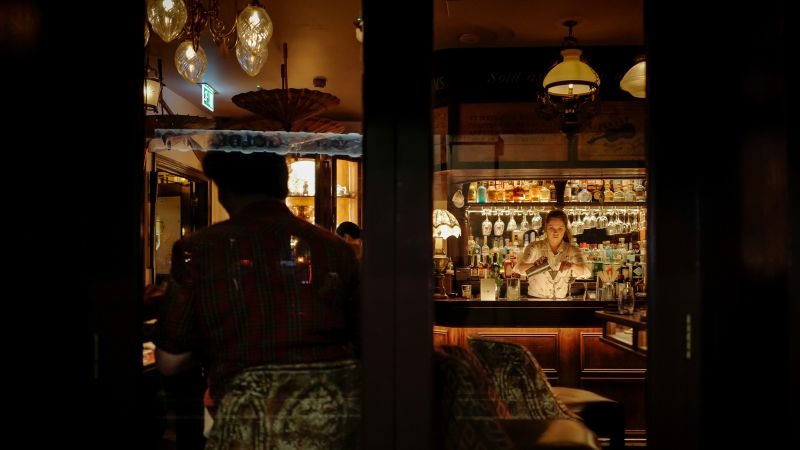The coronavirus pandemic has had a devastating impact on the hospitality industry in cities around the world, with many pubs, bars, and nightclubs struggling to survive amidst rising costs and dwindling patronage. In London, the cost-of-living crisis, combined with increased expenses like rents, energy bills, and wages, has forced many venues to close their doors permanently. Since March 2020, over 3,000 night-time establishments have shut down in London, resulting in a 15% decrease compared to pre-pandemic levels. The average operating costs for these businesses have skyrocketed by 30% to 40%, while fewer customers are visiting, leading to financial struggles for many owners.
The decline in nightlife is also attributed to changing behaviors among consumers, with more people choosing to stay at home or pre-load on alcohol before heading out to save money. This shift has led to a decline in overall spending at bars and clubs, making it harder for businesses to stay afloat. Even iconic venues like Heaven nightclub in London, which saw a surge in business post-pandemic, are now facing challenges due to rising costs and reduced consumer spending. High rents, energy bills, and lack of late-night transport options are exacerbating the situation for many establishments.
In other cities like Berlin, the pandemic-related energy crisis and reduced government aid for clubs have created additional hurdles for the nightlife industry. Despite being a popular destination for techno enthusiasts, Berlin’s clubs have struggled financially, causing concern for the city’s cultural identity. In Hong Kong, businesses are also grappling with changes in consumer behavior and the lingering effects of the pandemic, including high rents and staffing issues. The city’s once vibrant nightlife scene has been impacted by political unrest and strict pandemic restrictions.
London, which is a significant contributor to the UK’s hospitality industry, has seen a steady decline in nightlife venues even before the pandemic. The appointment of a “Night Czar” and efforts by the government to support the sector through tax freezes and discounts have been made to help struggling businesses. However, challenges like high rents, business taxes, and staff shortages continue to plague the industry. Beyond economic factors, the way people socialize post-pandemic has also changed, with consumers becoming more selective about where they spend their leisure time.
Overall, the future of the nightlife industry remains uncertain as businesses adapt to the new landscape and work to attract patrons back to their establishments. With ongoing challenges like rising costs, changing consumer behaviors, and geopolitical uncertainties, the road to recovery for bars, clubs, and pubs in cities around the world is likely to be long and challenging. However, with support from government initiatives and the resilience of owners and operators, there is hope for a revival of the once vibrant nightlife scenes in these urban centers.


